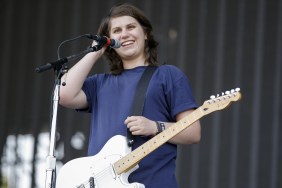A face-to-face interview with Ghost used to be shrouded in mystery. There would be secret codes, secret meeting places… you probably didn’t even know who you were going to be speaking to, given the band was primarily made up of nameless ghouls named… well, Nameless Ghouls. Have you ever had to ask for Nameless Ghoul in a hotel lobby? Exactly; now you’re…

The festival landscape has undergone major upheaval in the last three years, and Covid’s long-term impact on the music industry…










